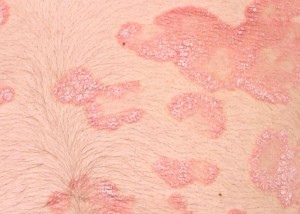The skin condition psoriasis, of which there are around 7.5m sufferers in the US, not only irritates the skin but also had a profound effect on the overall well being of those who have the affliction. This is caused by their dent in self confidence, according to Benjamin F Chong MD,Medical Chief of Dermatology at Parkland Health & Hospital System.
Dr Chong says that psoriasis can be very disabling as in addition to the physical discomfort those who have psoriasis can also have a very low self esteem as many of their lesions will be on parts of their bodies which are highly visible to others.
More than 125 million people worldwide—2 to 3 percent of the total population—have psoriasis, according to the World Psoriasis Day consortium, a global group of patient associations that aims to educate both patients and the public about this devastating skin disease by raising awareness with the annual World Psoriasis Day event occurring on October 29 this year.
A chronic skin disease characterised by red bumps with large silver-white scales, psoriasis most often appears on the elbows, knees, lower back and scalp. Psoriasis is not contagious but is thought to be genetic, or inherited. About one in three people with psoriasis report having a relative with the condition.
Symptoms include itching and pain. Studies show that between 10 to 30 percent of people with psoriasis also develop psoriatic arthritis causing significant joint pain. Nearly 60 percent of patients with psoriasis report their disease is a significant problem in their everyday life, causing them to miss an average of 26 days of work per year. Nearly one-quarter of people with psoriasis have cases that are considered moderate to severe.
Although there is no cure for psoriasis, treatments can help control symptoms and prevent infection. Topical treatments include lotions, ointments, creams and shampoos. Systemic treatments for more severe cases include medications and injections that lower the entire body’s immune response, not just the skin’s, to decrease the inflammation. A third option is phototherapy, which uses focused ultraviolet light to treat psoriasis.
“While we don’t have a cure for psoriasis, there are a variety of treatments that can be prescribed to help treat patients,” Dr. Chong stated. “Besides treating their physical symptoms, we also look for signs of depression and refer patients to medical specialists for further evaluation. Individuals with moderate to severe psoriasis may also benefit from counselling or participation in a support group to reduce self-consciousness about their appearance or relieve psychological distress. The disabling consequences of psoriasis are real, and people need to be aware of what they are.”

